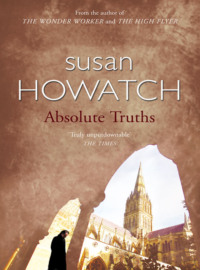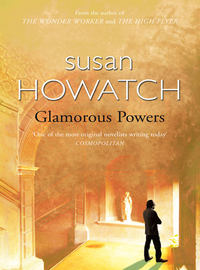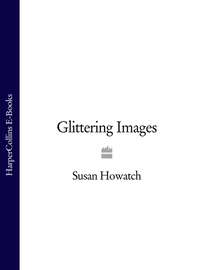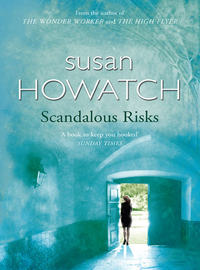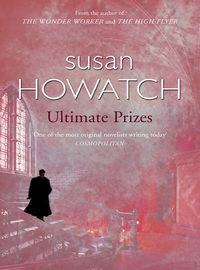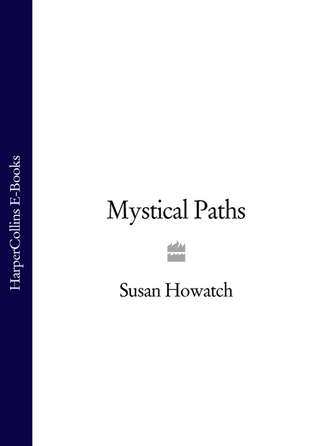
Полная версия
Mystical Paths
Yet I had been brought up an Anglo-Catholic. It was my wing of my Church. I belonged there, and as a mystic I too was drawn to the numinous qualities of the services. Yet although I knew I couldn’t abandon Anglo-Catholicism I was deeply dissatisfied with it. I felt strongly that it should be modernised but the traditionalists who ruled the roost were holding fast to the old ways as they developed a siege mentality. No hope of change there, and meanwhile that fatal old-fashioned look was becoming tinged with decadence. Often it seemed to me that the idol of the die-hards was now a god called LITURGY – and there were other even more unsavoury hints of decadence than idolatry, hints that were beginning to surface in the sexual hothouse of the late 1960s. Anglo-Catholicism had always attracted a homosexual element, but in Victorian times the homosexual priests had committed themselves to the celibate ideal and followed the fashion for intense friendships which were never consummated. Now celibacy was on the wane and society worshipped the idol called SEX. No wonder Anglo-Catholicism was in trouble. Sometimes I thought even heterosexual Anglo-Catholics were only interested in providing a camp stage-show of all the fashions imported from pre-Vatican-II Rome.
I said nothing of my dissatisfaction to my father. A relic of another age, the age when Anglo-Catholicism had been a dynamic movement sweeping all before it, he would have been deeply upset by my critical thoughts. He might even have thought I was a closet Protestant but I wasn’t. I just hated seeing Anglo-Catholicism go down the drain, and during my terms at Theological College I had found it a relief to retreat into the churchmanship of the Middle Way which I found not only in the College chapel but in the Cathedral. There was an Anglo-Catholic church in Starbridge – St Paul’s at Langley Bottom – but I never went near it. The Principal of the College said it had fallen into the hands of cranks. (‘Cranks’ was his shorthand for homosexuals and/or nutcases). Even my father, who thanks to his small circle of distinguished visitors was well primed with diocesan gossip, said once that he did hope I wouldn’t go there, and I was relieved to find I had no difficulty in giving him the necessary reassurance. I had no interest whatsoever in a square, dated ritualism oozing eccentric decadence. It would have been far too painful to watch, particularly since I attended my father’s services and knew how with the right priest even a dated ritualism could be made fresh, exciting and above all spiritually alive.
The big irony of this decline in Anglo-Catholicism was that a great many Anglo-Catholics were still able to kid themselves that everything was fine. This was because the Archbishop of Canterbury himself stood in the Church’s Catholic tradition, but if one stopped being sentimentally proud of the Archbishop, the uneasiness soon began. Although Ramsey might look old-fashioned he certainly wasn’t decadent and he certainly wasn’t out of touch with the harsh ecclesiastical realities of the 1960s, but I was now convinced he wasn’t typical of the High-Church wing. That wing needed to be revamped, given a hormone shot, dragged kicking and screaming into the midst of the Now Generation … or so I found myself thinking for the umpteenth time as I sat down amidst the florid, old-fashioned Catholic trappings in our family chapel that afternoon, but then who was I to criticise my elders and betters? I was just a twenty-five-year-old ordinand who had gone clean off the spiritual rails.
As I tried to crawl back on the rails again I knelt in the front pew, gave thanks to God for my deliverance from the demonic power unleashed at the séance, and prayed that Katie might be restored to full health. Then I set about making a comprehensive confession. I had become accustomed to making a private confession to God after every sexual lapse – a meaningless exercise, as I well knew, since I had had no intention of giving up fornication, but at least I’d found it helpful to go through the formal motions of repentance, and at least I had been able to tell myself that if I prayed regularly for the grace to be chaste there was always the chance that God might respond to my request. However, the catastrophe with Katie was in a very different league from my regular bouts of fornication and required not merely the acting out of a repentance ritual but a full-blooded, utterly honest confession combined with an unqualified promise to God that I would never behave in such a disgusting way again. This time my prayer for the grace to reform would be unmarked by insincerity. As I begged on my knees for forgiveness, every word would come straight from the heart.
Off I started. One by one I dragged my sins out of my memory and laid them carefully before God like a cat laying all manner of mangled little corpses before his owner. Pride, arrogance, lust, selfishness, vanity, disobedience, deceit (these last two related to the interview with my father) – and worst of all, the sexual abuse of a damaged human being. This was cruelty, a sin which always seemed to me to be much worse than mere lust. Nobody got much worked up about lust nowadays except my Uncle Charles ‘Anti-Sex’ Ashworth, but cruelty … Yet I hadn’t meant to be cruel. I’d meant to be – no, God only knew what I’d meant to be.
Thinking of God recalled me to my confession. I went on kneeling, mentally pawing over all the sins, but eventually I recited the Jesus prayer. This had a calming effect. Afterwards I scooped up all the sins, offered them to God and said without words: sorry, sorry, sorry, I want to reform, I want to turn around and lead a better life, please forgive me, please help me, please rescue me from this awful mess my life’s become. I prayed very hard, wordlessly, along these lines for some time. I did indeed feel deeply ashamed.
Finally I topped off the confession with the Lord’s Prayer and flipped the switch in my head to tune in to the Light. To my great relief a calmness instantly enveloped me, and I knew I’d been forgiven, I just knew, it was –
But my father hated that word ‘gnosis’ which recalled the Gnostic heresy.
Some people said Jung had been a Gnostic. My father had introduced me to Jung’s writings on religion with the caveat that I should beware of anything he wrote about Christianity. Jung was sympathetic to religion but often got in a muddle about Christianity and misrepresented the orthodox view.
‘Nevertheless he’s a profoundly religious man,’ my father had said, ‘and his writings are of immense interest as we all, priests and laymen alike, struggle to understand the human spirit.’ My father had long since grasped that the languages of Christianity and psychology could form two ways of expressing one truth, but I longed for a detailed synthesis which would make Christianity blaze across the minds of the unchurched mid-twentieth-century masses and render its message meaningful. It’s no good performing the classic academic exercise of expressing Christianity in terms of the latest fashionable philosophy. That appeals to no one outside the universities. For the mid-twentieth century you’ve got to express Christianity psychologically because even the average moron at a cocktail party has heard of the Oedipus complex. Or in other words, psychology’s the grassroots intellectual language of our time, and if you can translate Christianity into that, everyone will finally understand what the preachers are wittering on about in the pulpit – and then with understanding will come spiritual enlightenment …
I went on planning the conversion of England, but of course I was just an ordinand who had gone clean off the spiritual rails and was busy kidding himself he had crawled back on to them again.
At last, convinced that after such a successful confession I was now free to embark on the moral life which would signify my repentance, I set aside all thought of sin and realised I had missed lunch. To my surprise I found I was hungry. Back at the house I raided the larder, consumed two large roast-beef sandwiches, retired to my bedroom and slept.
Of course I never went to Starwater Abbey to see Father Peters.
X
My father had calmed me by his brisk dismissal of the Devil during his bilingual analysis; I was now able to believe that although I had encountered a demon, its master had been absent from the scene. Or, in the other language: I was now able to believe I had encountered neurosis but not the insanity which destroys the personality and prompts the murder and maiming of others. Nevertheless the memory of the paranormal phenomena continued to trouble me, and that evening in my sitting-room I began to reflect on the condition known in religious language as ‘possession’. If Christian was occupying Katie’s psyche in such a way that he was driving her to breakdown, could this perhaps represent the traditional ‘demonic possession’ in an updated form? My father had brushed aside the possibility that Katie was, in a traditional sense, ‘possessed’, but it seemed to me that the reality behind all the language did reflect a form of psychological possession.
I juggled with the two languages for a moment. One could say that Christian’s memory was at the root of Katie’s guilt, and that this guilt was making her neurotic. But could one say that Christian, not at peace with God as I had blithely supposed, was roaming around as a malign discarnate shred and infesting her? Perhaps, if one acknowledged the heavy use of symbolism, one could – but how confusing language was, how distracting! No wonder philosophers had become so bogged down in the problems it created for clear thinking.
The intercom buzzed on the side-table.
‘Call for you, Nicholas,’ said Agnes as I responded with a grunt. ‘Marina Markhampton.’
‘Okay, I’ll talk to her.’ I kept the bell of my telephone extension switched off because I liked the Community to screen my incoming calls; this was useful when I was meditating or studying or just feeling unsociable. Picking up the receiver I said: ‘Hang on, Marina,’ and waited for the click as Agnes hung up. It was always vital to wait for the click. Then I said: ‘Hi – how is she?’
‘Look, we’ve got to talk.’
The hairs rose on the nape of my neck. ‘What’s happened?’
‘When she got home she tried to cut her wrists.’
I opened my mouth. No words emerged. I clutched the phone and started to sweat.
‘It’s all right,’ said Marina rapidly. ‘She didn’t get far – the knife she chose was blunt. I got hold of the doctor and we managed to get her into that funny-farm near Banbury, the one where everyone goes to be dried out and detoxified. Emma-Louise went there after her first husband ran off with another man, Holly spent a month there after her first suicide attempt and Venetia’s sister Arabella practically lives there, so it’s all madly respectable.’
I managed to say: ‘Katie needs a hospital, not a chic rest-home! She needs a psychiatrist!’
‘My dear, there are oodles of psychiatrists there, they’re wall-to-wall. Anyway, I got Katie settled in and now I’m back in Oxford waiting for Katie’s mother to collect the children – that au pair’s good but I don’t think it’s right to give her total responsibility for three children in a crisis which could last some time. I plan to stay the night here, go back to the funny-farm tomorrow morning for a visit and then head for London. If you could come to my flat –’
‘What time?’
‘About three? Oh, and don’t forget I’ve moved from Cadogan Place – you do have my new address, don’t you?’
I flicked stiff-fingered through my address-book and eventually read aloud some words which included ‘Eaton Terrace’.
‘That’s it. Thanks, Nick.’ She hung up.
That night I walked in my sleep, and when I awoke the next morning I was lying on the library couch. That shocked me so much that I almost decided to visit Father Peters after all. Eleven years ago after my mother’s death he had cured me of somnambulism just as he had simultaneously cured me of triggering the poltergeist activity; he had taught me to stroke my psyche at regular intervals by prayer and meditation, and to channel the abnormal psychic energy out of my body by means of strenuous physical activity.
Remembering these vital lessons I devoted myself to reciting the mantra for half an hour. Then after attending mass I meticulously expended a lavish amount of energy on washing and waxing my car until it looked like a four-wheeled fantasy in an advertisement. But all the effort was worthwhile. By this time I was feeling well in control of myself, and as soon as I had finished an early lunch I drove off in my jet-black Mini-Cooper towards the road which led to London.
XI
Marina now lived in a large maisonette, the bottom two floors of one of those houses which cost a fortune a stone’s throw from Eaton Square. There was a sixty-foot garden, all paved, with a fountain flanked by stone cherubs at the far end. Marina told me she planned to hold ‘happenings’ there provided that the summer weather was benign and the neighbours were tame.
Конец ознакомительного фрагмента.
Текст предоставлен ООО «ЛитРес».
Прочитайте эту книгу целиком, купив полную легальную версию на ЛитРес.
Безопасно оплатить книгу можно банковской картой Visa, MasterCard, Maestro, со счета мобильного телефона, с платежного терминала, в салоне МТС или Связной, через PayPal, WebMoney, Яндекс.Деньги, QIWI Кошелек, бонусными картами или другим удобным Вам способом.


